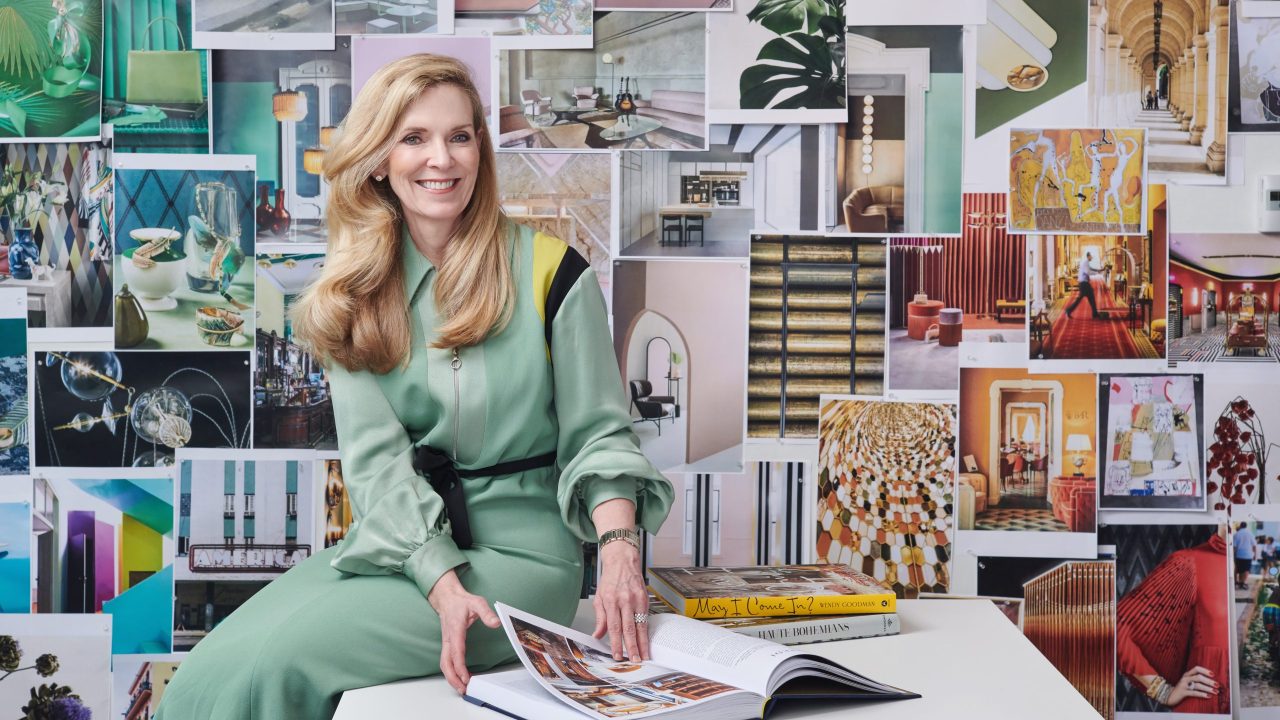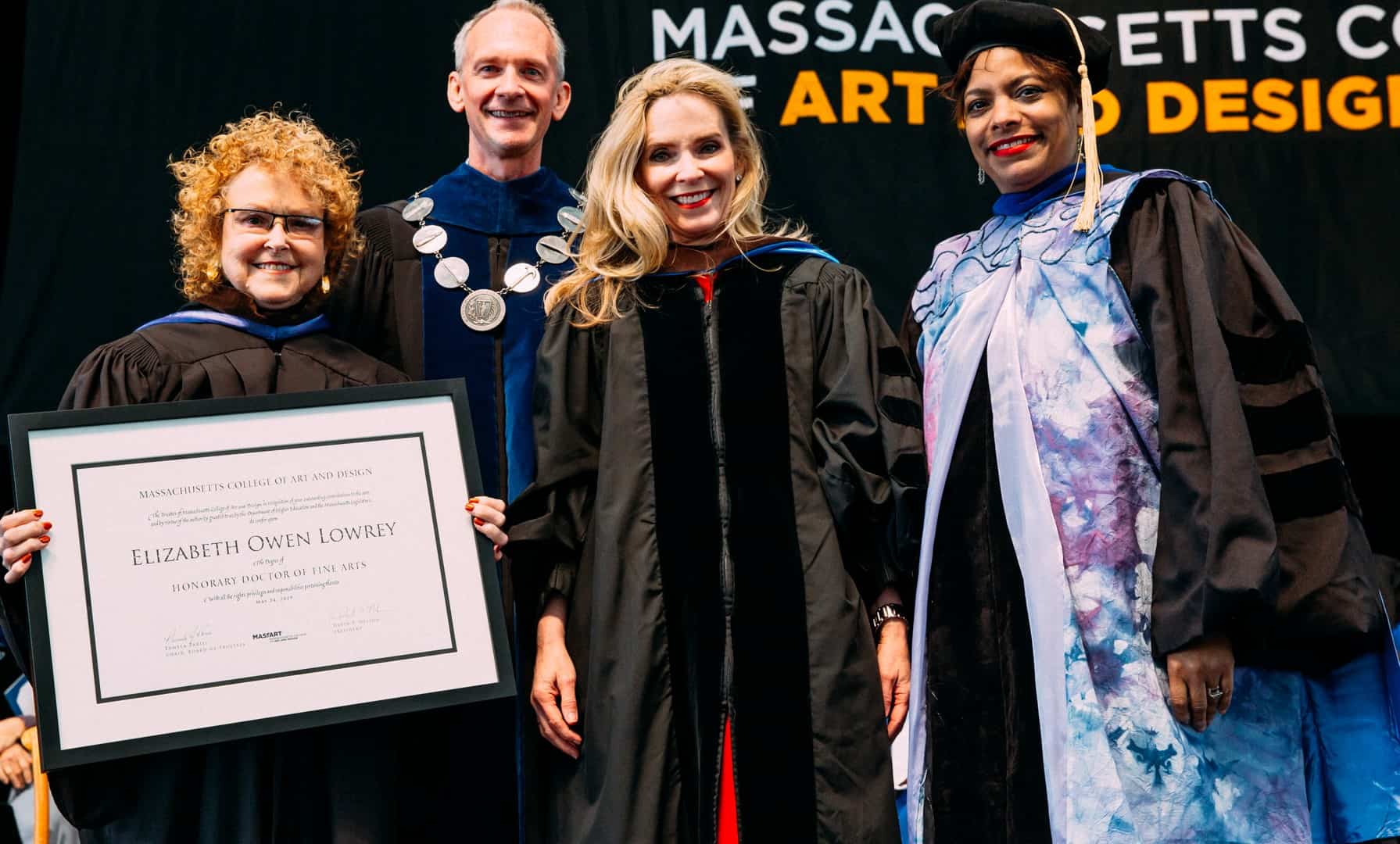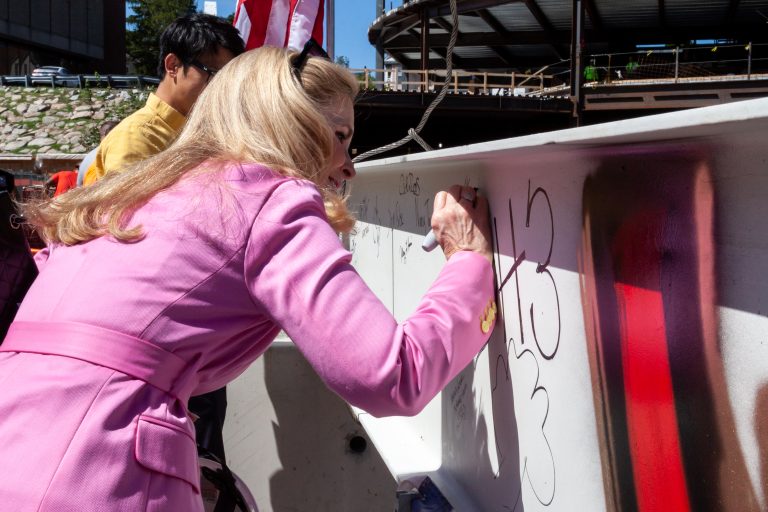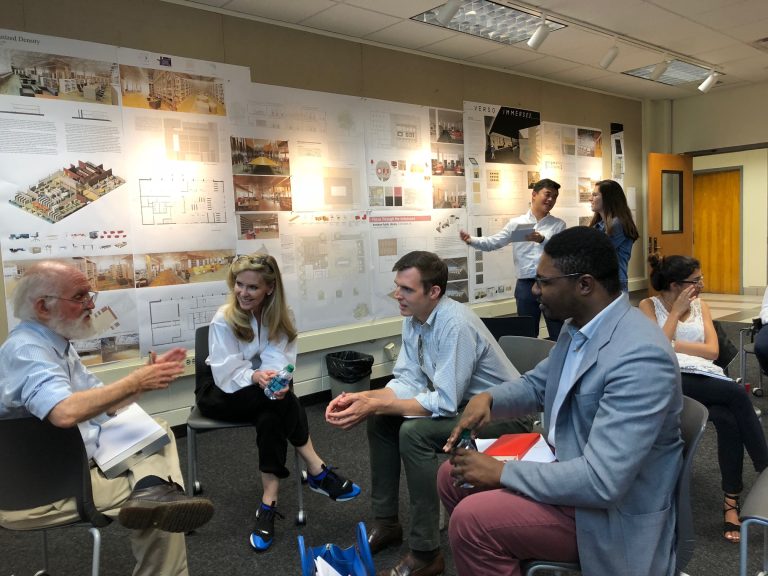ARIA Alumna Designing Spaces that Inspire

For Elizabeth Lowrey ‘83, a career in interior architecture has been about more than just designing beautiful spaces—it’s been about innovation, collaboration and a deep understanding of how environments shape human experience.
A Principal at Boston-based Elkus Manfredi Architects, Lowrey has worked on everything from a groundbreaking life sciences campus to luxury hotels, bringing a visionary approach to each project. In recognition of her industry leadership, Lowrey was inducted into the College of Fellows by the International Interior Design Association.
Finding a Vision at Auburn
That passion for pushing boundaries began at Auburn, where she says an entrepreneurial spirit was ingrained in her education. One of her most defining experiences was her thesis project, which challenged her to think beyond traditional design.
“The faculty allowed me to not only do a project but invent the program—something that was not typical,” said Lowrey, who earned her bachelor’s from what is now the School of Architecture, Planning and Landscape Architecture. “I had to write a business plan and then design it. That was huge—it was extra work, but it was career-defining because it taught me to think outside of the box and begin to understand the correlation between good design and good business.”

Her thesis project, a prototypical salon within a major metropolitan hotel complex for the traveling female executives, was ahead of its time. Today, the wellness industry is booming, but even then, Lowrey saw the potential in designing environments that supported both professional and personal well-being.
A foundation of creative problem-solving, adaptability and strategic thinking would go on to shape her career in ways she couldn’t have imagined at the time.
“We’ve always worked with clients who are doing something first or trying to do something differently. That’s how my practice has evolved,” she shared. “That’s what we do most at Elkus Manfredi—collaborating with clients around invention or discovery—and I trace it back to that thesis project.”
Defining a Career Through Innovation
After Auburn, Lowrey built a career that blends design, business and storytelling. Her ability to work across industries—from corporate headquarters to hospitality and life sciences—has made her one of the most influential figures in her field.
“In my work today, our practice is incredibly well-rounded, she said. “In a day, I will work on a hotel, a cruise ship, a corporate headquarters building, a university residential project or a world-class life science research building. We’re not siloed into things. And I think that ability and flexibility were also ingrained in me early in my career.”

One of her proudest achievements is her work on the Texas Medical Center in Houston, the first-ever research facility where major universities and hospitals share space. The architecture was designed to foster opportunities for researchers from different disciplines to connect and collaborate.
“That’s collaboration with a big ‘C,’” she said. “The building breaks down barriers and allows the science, the creative collisions, to happen between institutions, between individuals, between departments.”
She has also played a key role in hospitality projects such as the White Elephant hotels in Nantucket and Palm Beach.
“They’re smaller properties, but they have been designed around the history and context of those two places,” Lowrey stated. “We placed a strong emphasis on curating original art and on creating those Instagram-able moments that we all desire when we travel.”
She has even collaborated with Disney, where she learned from the “master storyteller” how to create spaces that engage and inspire.
The Fundamentals of Interior Architecture
When it comes to storytelling through interior architecture, Lowrey is a big believer in the basics.
“You need space to breathe, access to natural daylight, clean air and sustainable materials,” she explained. “Getting that right isn’t always easy, but when you do, you create healthy environments where people thrive. And then you overlay storytelling because one doesn’t work without the other.”
This philosophy has guided her work at Elkus Manfredi Architects, where she has helped create environments that enhance both function and human experience.
A Career of Recognition and Mentorship
Lowrey’s leadership in the field has not gone unnoticed. She has been named one of Boston Magazine’s Most Influential Bostonians for six consecutive years and received an Honorary Doctor of Fine Arts from the Massachusetts College of Art and Design. Her many accolades include the Real Estate Finance Association’s Distinguished Service Award and the Women in Design Award of Excellence from the Boston Society for Architecture. This April, she will be recognized alongside her firm’s CEO and Founding Principal, David Manfredi, with the Fenway Alliance Celebrates Exceptional Spirit (FACES) Award.

For Lowrey, recognition is meaningful, but what drives her most is the opportunity to mentor the next generation of designers. She credits her Auburn professors with instilling in her not only technical knowledge but also the confidence to take risks and think independently. She remained in close contact with one professor in particular, Gaines Blackwell, until his passing in 2022.
“Gaines Blackwell was all wrapped up into history, current context, the experience of architecture, the beauty of it,” she said. “He had confidence in me, maybe sometimes when I didn’t have it in myself.”
Today she strives to provide that same kind of support and encouragement to young architects and designers.
To do the work we do successfully, it takes a big team and a lot of collaboration. Auburn taught that way ahead of its time.
Advice for the Next Generation
As a mentor, Lowrey emphasizes the importance of curiosity, adaptability and collaboration. She encourages students to learn to listen, avoid making assumptions and appreciate every stakeholder’s vested interest in a project. Lowrey stresses the need to always remain curious, seek out mentors (or many) and make a plan—even if it changes over time. Above all, she encourages students to remember the importance of flexibility and resiliency in their journey.
“It’s not about one person having the singular idea,” Lowrey shared. “To do the work we do successfully, it takes a big team and a lot of collaboration. Auburn taught that way ahead of its time.”
See more in:
Alumni, Alumni Recognition, Industry Recognition


